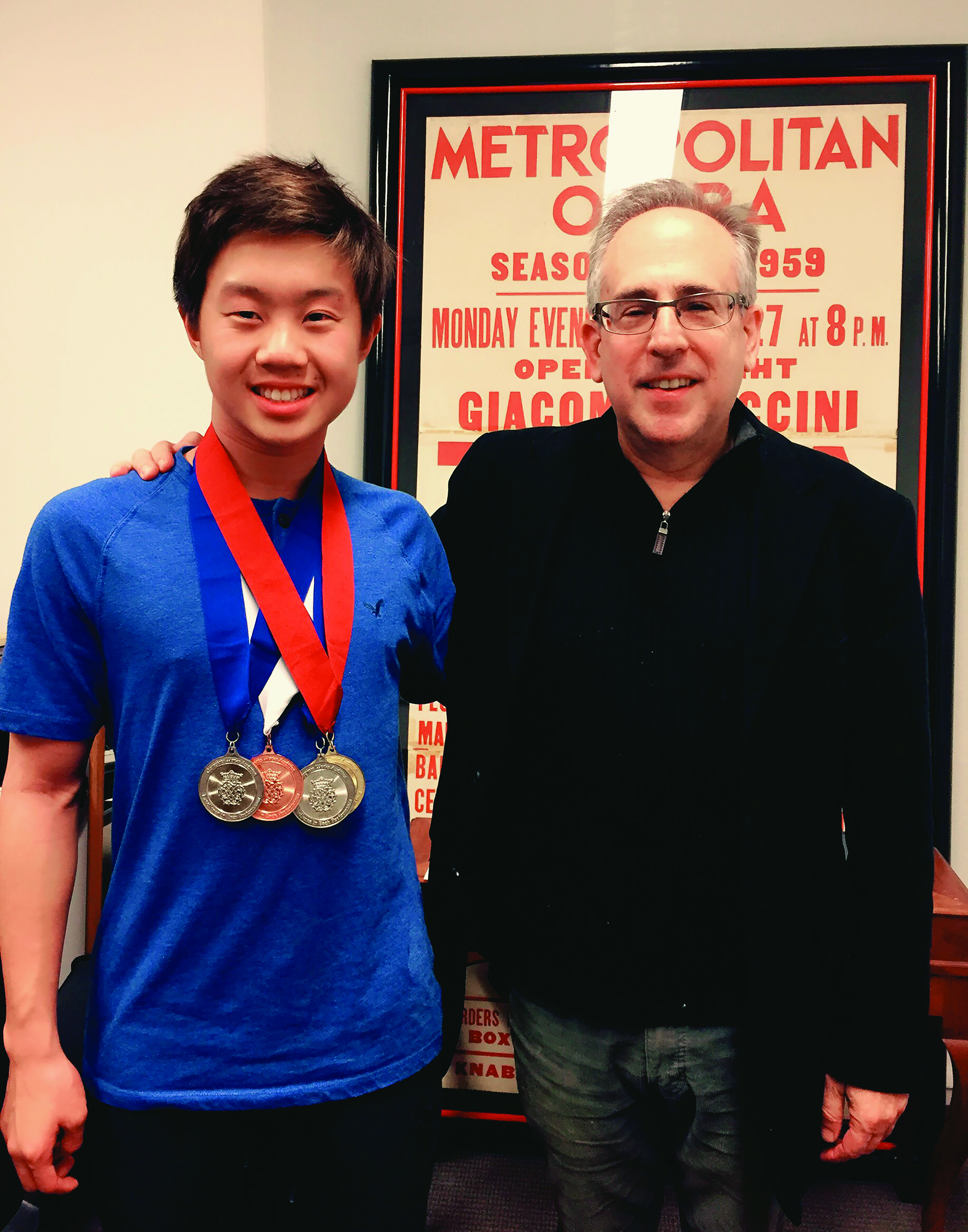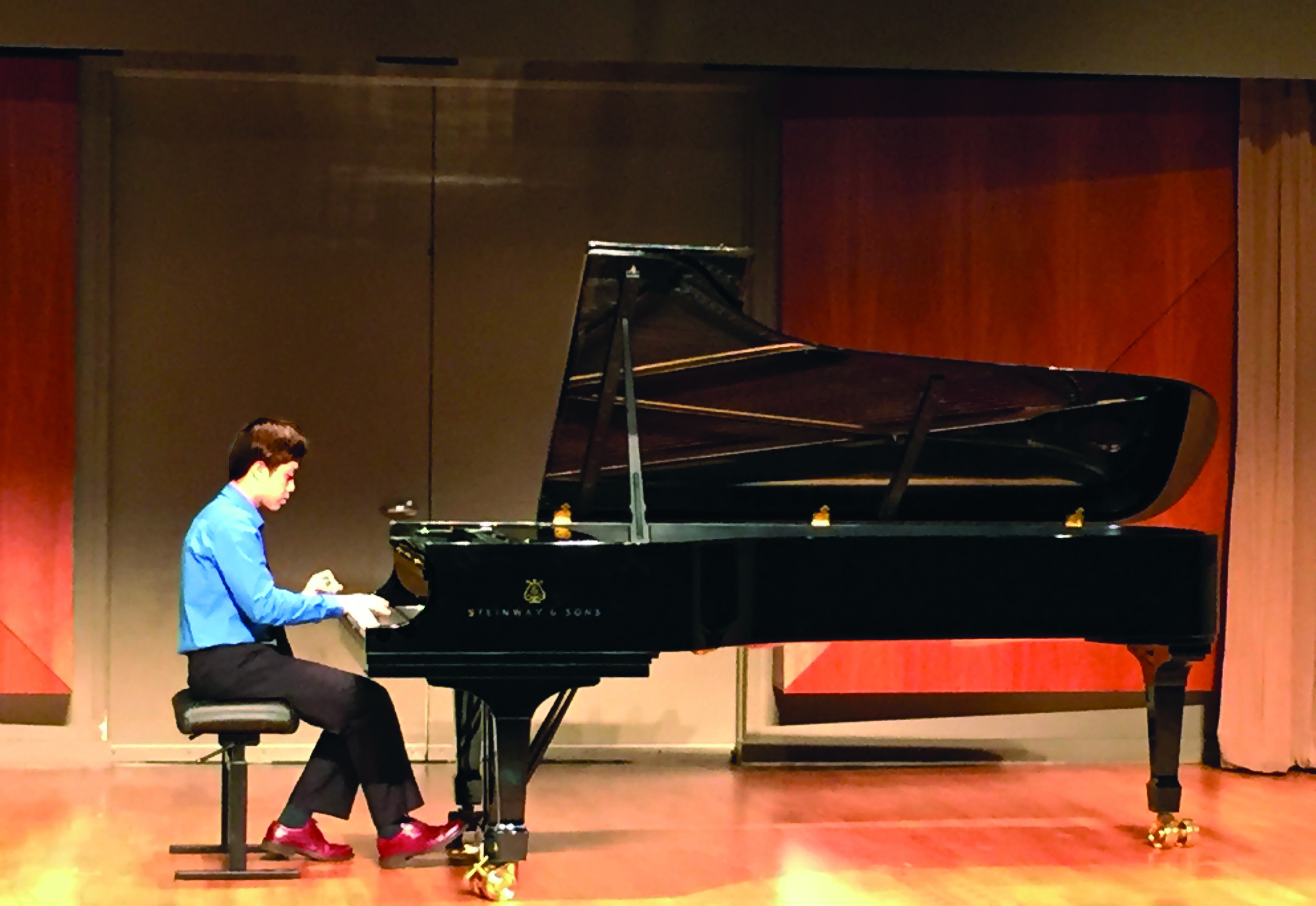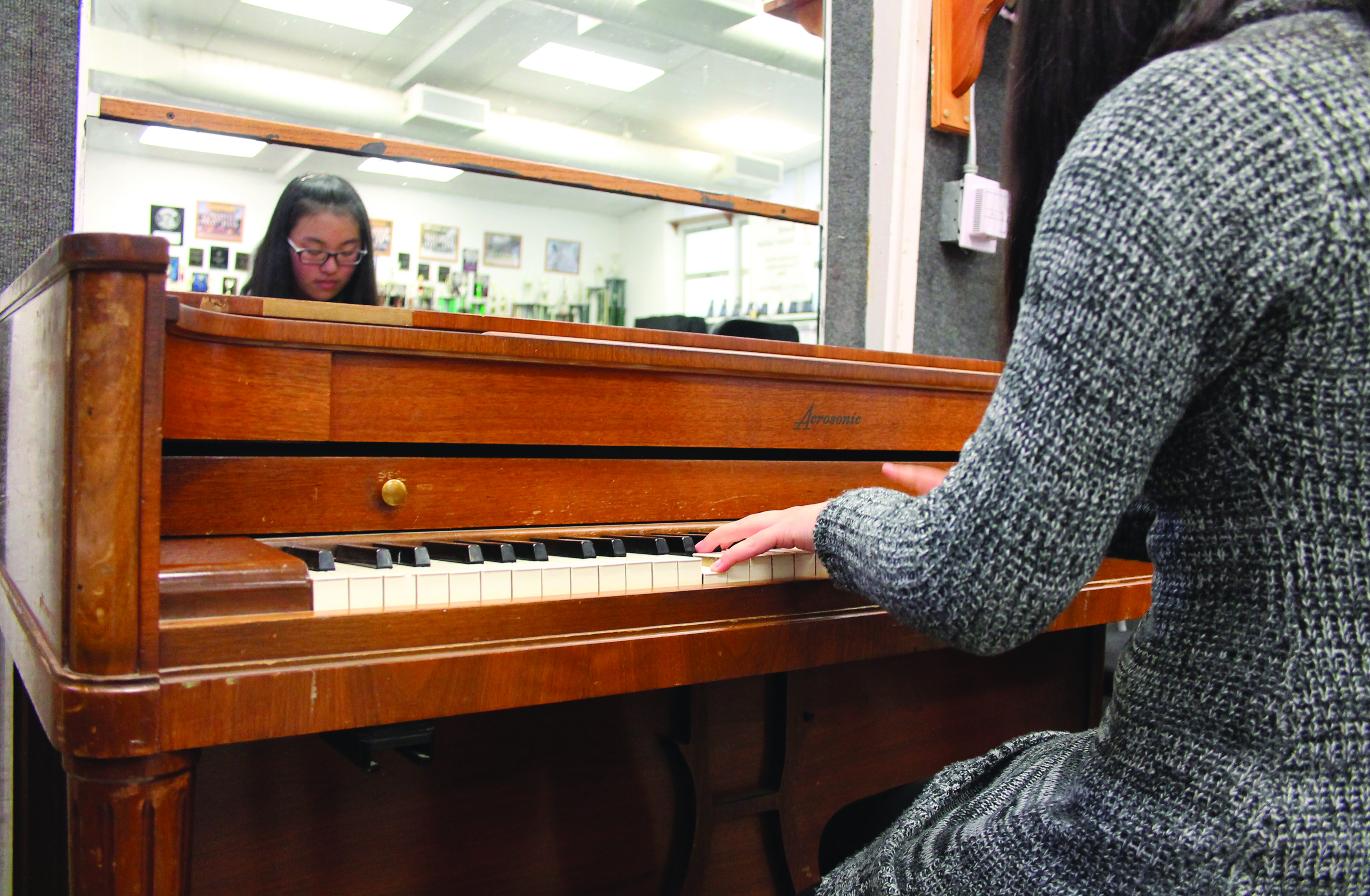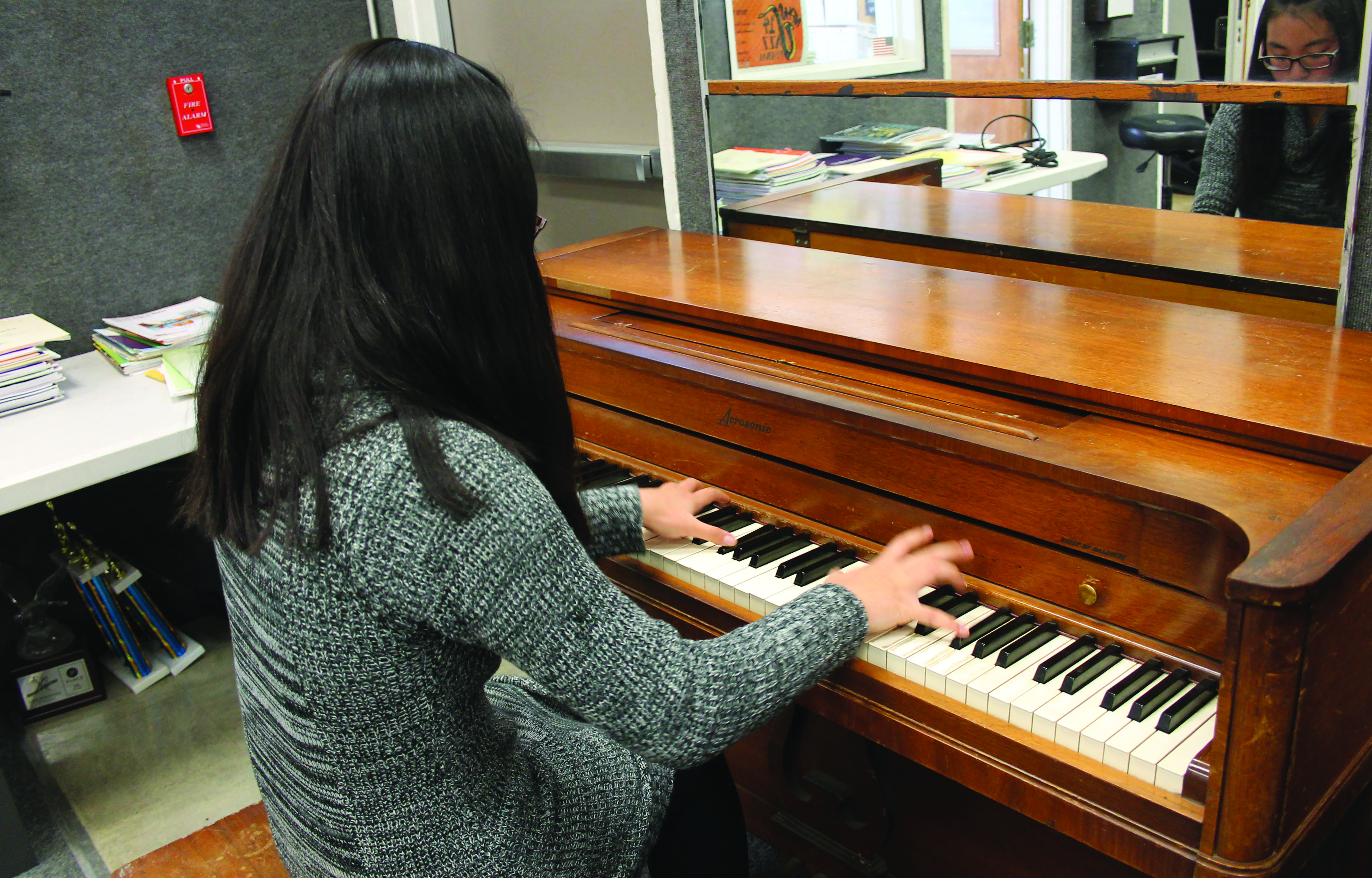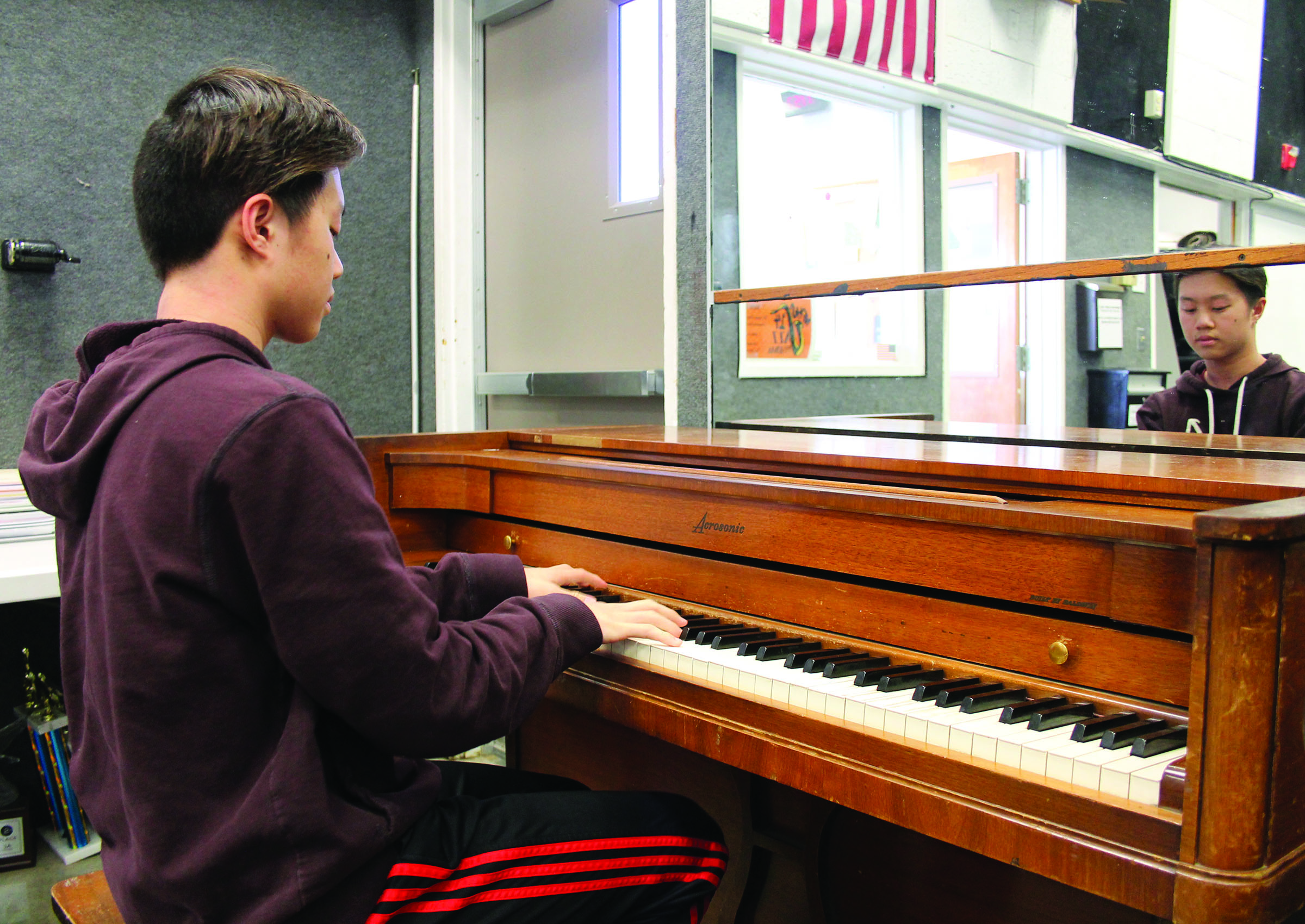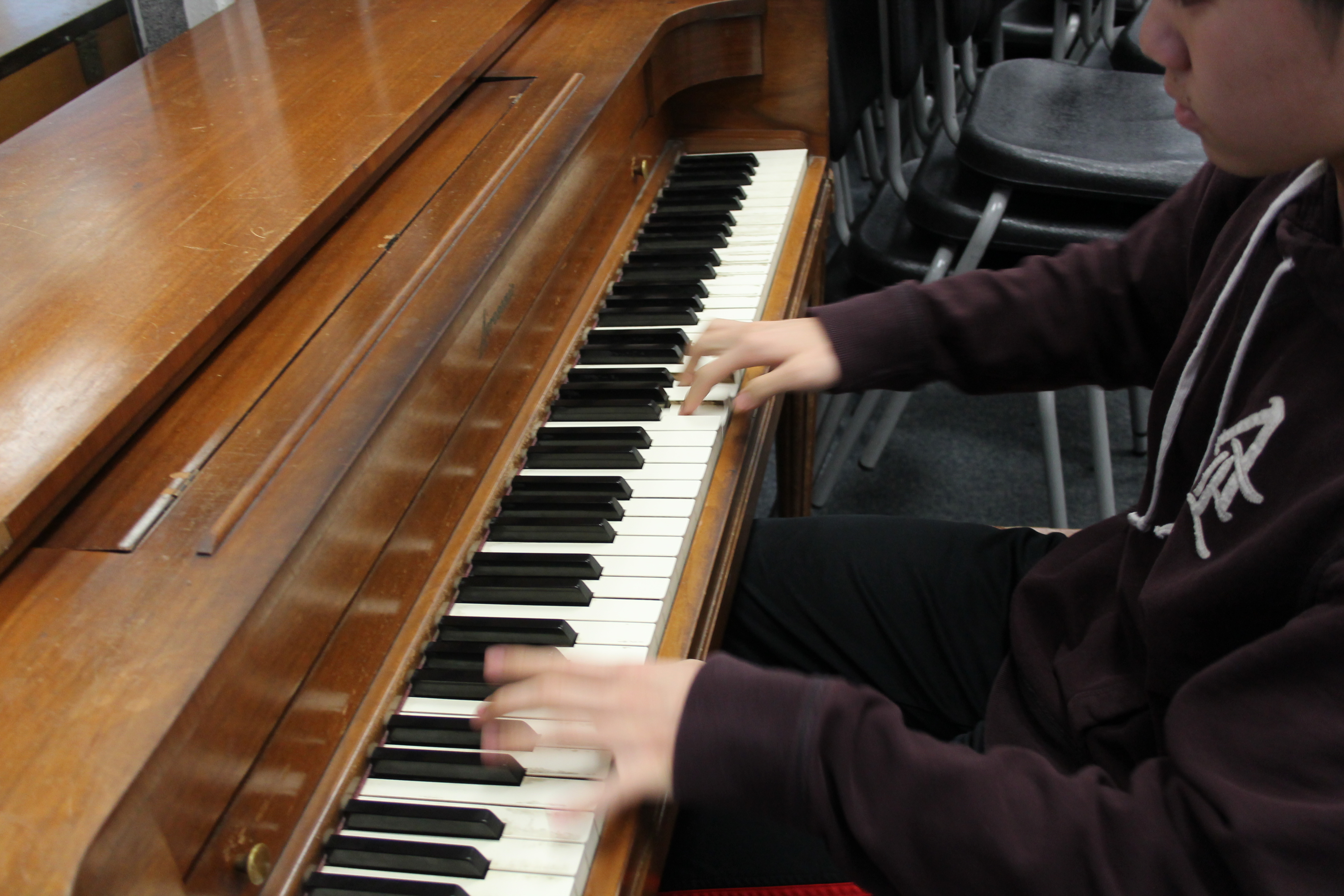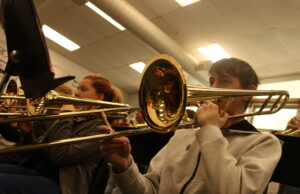Musical Panthers Find Harmony at Colburn
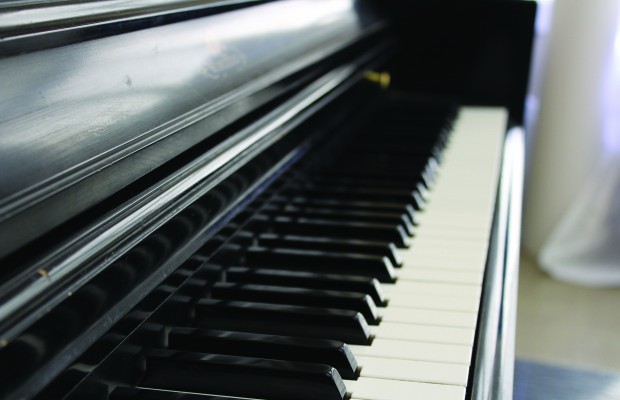
The crowd waits silently in the darkness with anticipation, expectations rising. From the stage, it looks like a still, black mass, only just moving to applaud, with occasional camera flashes from anxious parents. Suddenly, a concerto breaks out and the crowd cannot help but become enchanted by the melody, gently swaying in their seats and tapping their feet to the beat.
As he falls into the familiar rhythm of the piece, Richard Qiu feels his racing heart slow to a jog and his nervous expression relax into a confident smile. His no longer sweaty palms move effortlessly over the black and white keys, with expertise that is earned only after months of rigorous practicing. Performing and competing at a caliber such as Qiu’s packs his days with one task after another and leaves him with very little free time.
This is the repetitive schedule of a few hard-working students not only dedicated to their everyday schoolwork but also to their music. As a way to fine tune their musical talents, Owen Boyd, Grace Chen and Qiu attend the prestigious Colburn School.
Established in 1950, the Colburn School is a musical academy in downtown Los Angeles, just across the street from the world-renowned Walt Disney Concert Hall. The school is divided into three smaller specialty schools: the Community School, the Musical Academy and the Colburn Conservatory.
Students range from age four to 30 as many upper-level students come to Colburn to receive their master’s degree in music. The students there are not only musically gifted, but extremely passionate and disciplined about the music that they play, with most students pursuing a career in the industry.
Boyd, a sophomore and bass player, was hesitant at first to enroll. Getting a “fresh start” at some new school called Colburn did not sound as appealing as the way his mom described it, and Boyd was in the middle of playing as Principal Bass for the Los Angeles Youth Orchestra. “My mom and I thought I should enroll there, as I could get a fresh start there; it is very interactive, and it seemed that the environment was really good for serious students,” he said. “Now, I’ve started to become more open-minded.”
Qiu, another sophomore, also currently attends the Colburn Community School, and has been taking lessons there for 10 years from Jeffrey Lavner. “I actually learned about Colburn from my sisters. They both went to Colburn for piano and as I grew up, I noticed great improvements in their playing,” Qiu, a pianist, said.
On the other hand, despite being introduced to Colburn by her parents, pianist and sophomore Chen did not take much convincing because she already “wanted to enhance (her) music understanding.”
The school, while also providing a lot of one-on-one support, does not fail to give its students real world musical experiences. “I think one of my proudest music moments was at the Los Angeles National Liszt Competition. For that competition, I had been playing my piece for two years, and after I performed, I received third in my category,” Qiu said.
Boyd had lots of experience even before attending Colburn, performing at the school’s Zipper Hall, the Los Angeles County Museum of Art (LACMA) and even touring Vienna and Prague with the Los Angeles Youth Orchestra before his freshman year. “I will be featured with the orchestra at this school (NPHS),” Boyd added, “and I’m going to be playing a concerto with the Conejo Valley Youth Orchestra, which I currently play Principal Bass in. Next year, in about January of 2018, I will be playing a concerto with them.”
Chen also treasures her performance experiences. “When you perform, it’s really rewarding (because) other people enjoy it as well as yourself,” she said. However, not every aspect of music is as thrilling as performing. On the less enjoyable moments of an otherwise glamourous pursuit, she jokingly added, “Well I definitely don’t love the practicing or fingering and such.”
Looking back on their experiences, although they all took different yellow brick roads, Boyd, Chen and Qiu cannot imagine their lives without their Emerald City, the musical academy.
“It has very much increased my technical skill, my musical skill, and my ability to play, but it has affected my social life too because there are many people that I know from there,” Boyd said. “It’s a community school, but it’s also a community.”
Not only has Colburn helped improve skills and form new connections, but it has allowed Boyd to dabble in writing music. “I’ve tried composing, but I’m still a beginner-intermediate level music theory student. I do it for fun,” Boyd said. “It’s kind of a stress reliever, it’s really relaxing, and although it could be better and I could diversify my standards a bit more for composition, it’s still really cool to create worlds with different types of instrumentation.”
For Qiu, although the school has been a lot of work, it has had its upside, increasing his appreciation for music. “Colburn has made me busy, but has changed some parts of my music personality, and has made music a lot more fun, allowing me to immerse myself in music in many different ways,” he said. Living and breathing music, classical in particular, has been a crucial part of his life. ”I love all types of music, but I also listen to classical music often because it’s where I’m most comfortable. I typically understand what’s going on in these types of pieces better than others, but I enjoy many types of music,” Qiu said.
For the future after Colburn, Boyd has decided to stay focused on his bass as a career. “I intend to apply for conservatories exclusively, and I’ll take auditions for t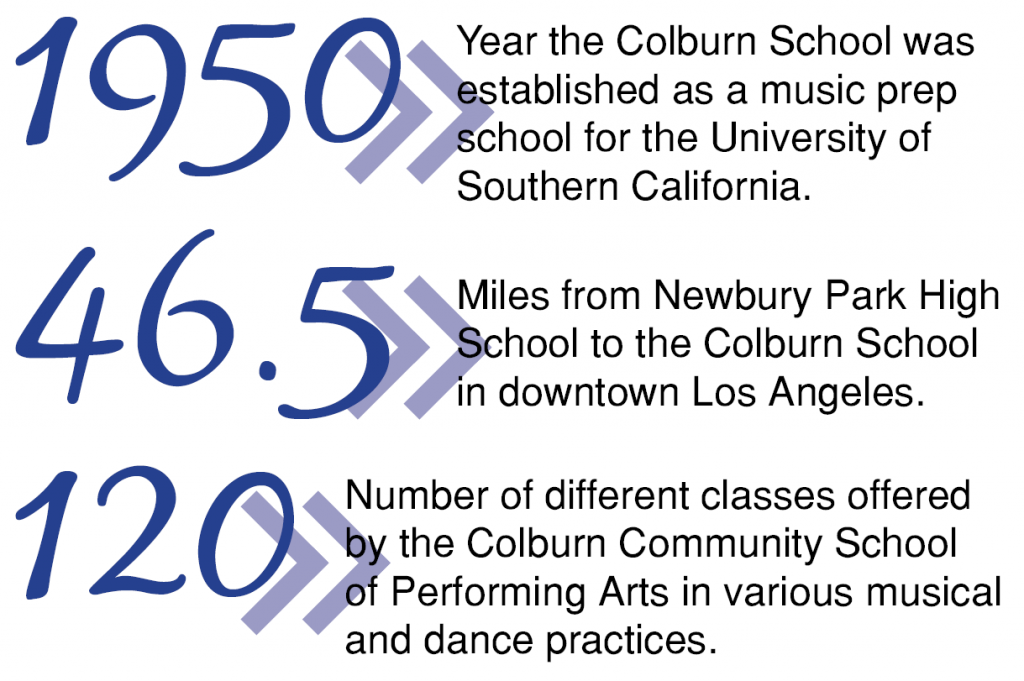 hose,” he said. “Later, hopefully, I’ll be able to pursue either a teaching job or an orchestra job.”
hose,” he said. “Later, hopefully, I’ll be able to pursue either a teaching job or an orchestra job.”
Qiu also plans to continue studying piano, “…not as a major, but perhaps as a minor for college.”
Unlike Boyd and Qiu, while Chen has been dedicated to piano for a decade, she has recently begun the exploration of a new instrument: the violin. Now with both piano and violin on her plate and the new responsibility of practicing both every day, it is a wonder how she juggles her packed schedule.
Even with the added workload, Chen would not change a thing. She proudly declared, “If you don’t play, you’re missing out on a lot, like a whole perspective of life.”

